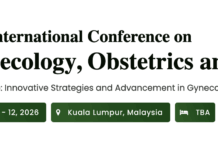
Doctors successfully treated the longest known SARS-CoV-2 infection that lasted almost 300 days with a mixture of two monoclonal antibodies.
In May of last year, Dave Smith tested positive for COVID-19 for the first time. Over the next 10 months, he underwent multiple hospitalizations and several different treatment regimens. During this time, he had over 40 PCR tests, all of which returned positive. Finally, on the 311th day, he tested negative thanks to an experimental treatment. Thus, making this the longest SARS-CoV-2 infection in the world.
Whenever I went bad, I went really bad – down to death’s door. My wife started to arrange a funeral five times.
Dave Smith
Notably, the 72-year-old had received chemotherapy in 2019 for chronic lymphocytic leukaemia (CLL). CLL is a type of blood cancer that affects the body’s disease-fighting white blood cells. Thus, resulting in an immunocompromised individual with an inability to produce adequate antibodies. Furthermore, he had a history of hypersensitivity pneumonitis – a rare immune system disorder causing inflammation of the lungs.
Doctors initially treated Dave with the antibiotic azithromycin. After a few days, he was sent home but still felt unwell. His symptoms continued to worsen and in July he was readmitted. Doctors suspected a reinfection, however genetic sequencing revealed it to be the same infection. For the next few months, Dave continued to go through a cycle of improving and worsening.
Regeneron’s Antibody Treatment Proves Successful
Seven months later, doctors decided to administer Remdesivir to Dave. He received a 17-day treatment but showed no improvement. On day 4 of the remdesivir treatment, doctors began intravenous human immunoglobulin (IVIG) in hopes of treating Dave’s infection. Dave continued to deteriorate. Finally on day 265, doctors started Dave on Regeneron’s antibody treatment.
The experimental treatment involves a combination of two monoclonal antibodies, casirivimab and imdevimab. Preliminary results from its clinical trial had shown the treatment reducing deaths by one-fifth in hospitalized patients. In Dave’s case, his symptoms slowly began to subside and eventually, by day 311, he tested negative for SARS-CoV-2.
Authors of the study believe that immunocompromised individuals such as Dave require better treatment options. Moreover, they are more likely to harbor mutations; thus, emphasizing the need for greater access to various therapies.
As the virus can evolve in this group, and develop mutations that are present in emerging VOCs (variants of concern), it is key that we monitor the evolution of the virus in these individuals and effective treatment options are available to eliminate the virus.
Dr Andrew Davidson, study author
Reference:
Maia Kavanagh Williamson et al, Chronic SARS-CoV-2 infection and viral evolution in a hypogammaglobulinaemic individual, medRxiv (2021). DOI: 10.1101/2021.05.31.21257591



